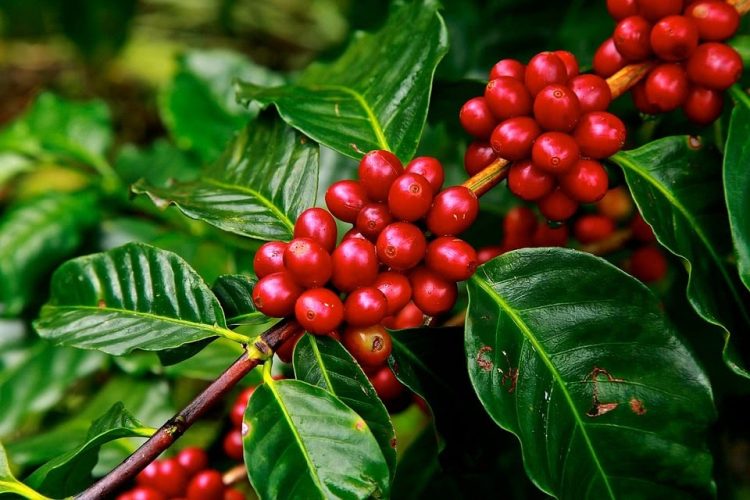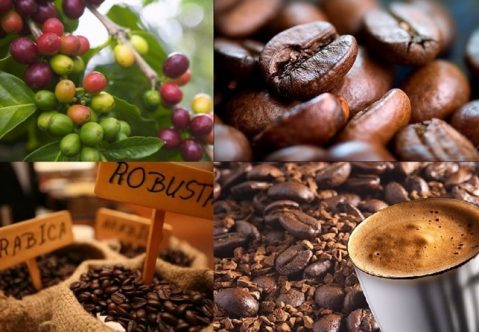In a recent survey on the level of awareness about organic coffee, more than 60% of people who have the habit of drinking coffee said that they did not know what organic coffee is, but the vast majority of them said that they did not know what organic coffee was. that organic coffee is healthier than regular coffee.
This is the important topic of today, as drinking something greatly affects the quality of our health, especially when consumed on a regular basis.
In the past 5 years, organic food has become increasingly interested and popular and many organic product projects have spread their value to the community. But do we really need to consider when it comes to coffee? Is organic coffee better than regular coffee? Let's find out with Coffeecherry.
What is organic coffee?
Organic coffee is coffee grown using organic methods, without the use of chemical fertilizers, synthetic fertilizers, pesticides or genetically modified seeds (GMO).
There is a saying that “You are what you eat, so don't be fast, cheap, easy or fake.” This is also quite true when you use coffee.
If you don't want to drink a cup of coffee that has been exposed to harmful pesticides, herbicides, fungicides, and fertilizers, then organic coffee is a surefire way to ensure the cleanest coffee experience at the same time. better for the environment.
Some may argue that the organic market is just a passing trend and that food and beverages around the world must maintain a certain level of quality to be sold. Thus making the organic label a scam.
In any case, we think it's better to be safe than sorry. You wouldn't drink a glass of water if you knew it was contaminated with pesticides, so why risk your coffee?

Ripe organic coffee
Is organic coffee healthier?
Did you know that a conventionally grown coffee tree can use up to 200 types of pesticides, a crop that requires the heaviest chemical treatment of any agricultural product in the world.
Because coffee cherries are exposed to direct sunlight all day, it weakens the coffee plants' immune systems and makes them susceptible to insects and pests.
Farmers then have to spray large amounts of pesticides and insecticides directly onto the coffee beans, which will certainly remain in the drinks that people drink every day.
Through this process, you can see that this is not only harmful to our health, but also toxic to coffee farmers.
When it comes to regular coffee, there are two things that the farming process affects. The first are those who pick and handle coffee cherries during cultivation and processing. Second is you, the consumer.
You should know that the chemicals involved in growing non-organic coffee (conventional coffee) are extremely dangerous. In addition, they can cause short- and long-term health problems for both coffee growers and us consumers.
What is the difference between organic coffee and regular coffee?
When it comes to organic and regular coffee, what is the difference, and who is the winner? Is regular coffee really that bad?
As you can see from the information mentioned above, coffee is usually not good for anyone who drinks it, the farm, the animals, or even the residents living next to where the coffee is normally grown.
But let's dive a little deeper into the farming process of both organic and conventional coffee.
The biggest differences are in the parts of the process that we don't see. Cultivation process.
When it comes to organic agricultural production, the farmer's primary focus is on making decisions at all steps of the process to support the health of both the environment and the consumer.
An organic farmer starts with a natural fertilizer. This is usually something that comes from the coffee grounds themselves or livestock manure.

Organic coffee production process
While an organic farmer does not have to battle as many insects or pests as a conventional farmer when starting the farming process, they will encounter weed problems.
For this, organic farmers will use natural methods to take care of weeds. This can include burning weeds with a natural gas flare, using animals to eat the weeds, or even removing weeds by hand.
A typical farmer will begin his process by fumigating the soil to remove naturally occurring fungicides. The next step is to apply petroleum-based chemical fertilizer to the soil. The coffee beans are then soaked in pesticides and fungicides before being planted. After the seeds are planted, another chemical is added to the irrigation water to keep pests away. After the coffee plants begin to sprout, farmers will typically spray herbicides on them to kill off unwanted weeds.
When comparing these farming processes with each other, it is difficult to deny that there are huge differences in the way these types of coffee plants are grown. Not only does it have a huge impact on our environment, but it can also have irreversible consequences on our bodies.
When it comes to organic coffee, there's no question that cleaner beans equate to cleaner air, water and soil. This is because no synthetic fertilizers or chemicals are used to produce coffee.
Although regular coffee maintains its health benefits under pesticide use, organic coffee beans are higher in nutrient-rich antioxidants. Some people even claim they can taste the difference! And finally, it's important to know how your coffee is grown.
We all want to buy responsibly sourced coffee. Ensuring that your organic products are genuine by verifying that they are certified organic will ensure the highest organic integrity.